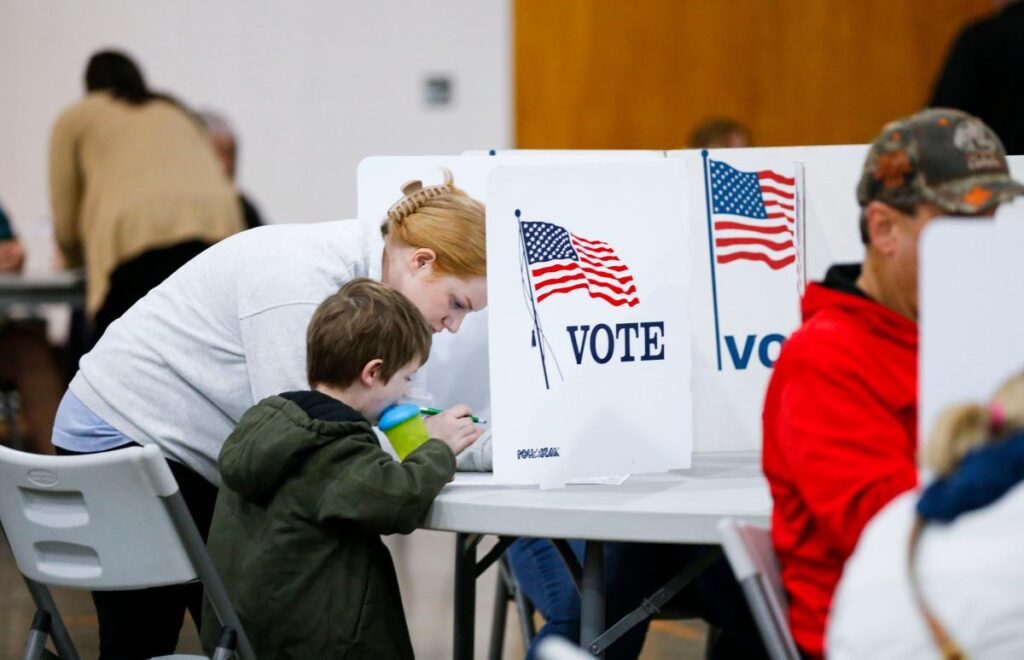As Missouri voters exercised their right to vote for over a week, a range of election results were emerging, particularly by late Tuesday. The outcomes in Springfield, including significant elections and statewide ballot measures, dominated the headlines. Starting from the top, former President Donald Trump appeared to be making strong gains towards reclaiming the presidency, with Missouri firmly siding with the Republican ticket, featuring Trump and running mate JD Vance. Even as votes were still rolling in from several battleground states, the state’s staunch loyalty to Republican candidates remained evident.
Among the key races, Missouri’s Republican incumbent Josh Hawley successfully won a second term in the U.S. Senate, holding off a formidable challenge from Democrat Lucas Kunce, a former Marine. Following this, Lt. Gov. Mike Kehoe was elected as Missouri’s 58th governor, emerging victorious over Springfield Democrat Crystal Quade, the minority leader in the Missouri House. The campaign was notably less expensive than other races, suggesting a focus on issues rather than extravagant campaigning. With Kehoe moving to the governor’s mansion, an open race for lieutenant governor was held, resulting in the election of Republican Dave Wasinger, a St. Louis attorney who assumed this influential position.
In the broader landscape of state elections, State Sen. Denny Hoskins claimed victory for the open Secretary of State position, succeeding Jay Ashcroft. Meanwhile, Vivek Malek, originally appointed by the governor in 2022, won his first full term as the state’s chief financial officer—a role essential for overseeing state revenues and banking operations. Furthermore, Andrew Bailey, who was appointed Attorney General earlier in the year, solidified his position through successful election efforts, indicating strong Republican alignment within Missouri’s executive offices.
At the congressional level in southwest Missouri, Eric Burlison managed to retain his 7th District seat, further illustrating the Republican strength in a district previously held by U.S. Rep. Billy Long. The election cycle for the Missouri legislature was comprehensive, with all House of Representatives seats contested alongside a key Senate seat in the Springfield area. A few notable contests included early leads for Democratic candidates in several districts, although vote counting delays in Greene County played a significant role in the final outcomes, highlighting the complexities of electoral logistics.
In local governance, Greene County incumbents faced less contestation, with Republican candidates maintaining unopposed positions in several key offices such as Sheriff and Treasurer. The sole competitive race, for the District 2 seat on the county commission, had incumbent John Russell leading significantly against his opponent Tim McGrady. Judges up for retention also seemed poised to remain in their positions due to favorable early returns, indicating voter confidence in the judicial continuity within the region.
Voters in Springfield addressed several significant amendments and propositions in the ballot. A pivotal proposition to replace an expiring sales tax funding local public safety pensions appeared to pass convincingly, alongside a measure legalizing sports betting, which was narrowly ahead by late Tuesday. Notable constitutional amendments were also voted on, including the passage of Amendment 3 to protect abortion rights and a decisive ban on ranked-choice voting through Amendment 7. Proposition A was particularly significant, as it raised Missouri’s minimum wage and mandated paid sick leave for employees. These results reflect a dynamic interplay of local and state interests in Missouri’s electoral landscape, with both sides showcasing pivotal issues that have the potential to shape future policies in the state.

